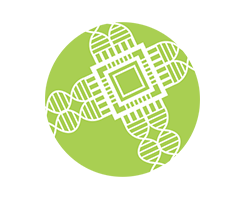 |
Chemical and Biomolecular Engineering |
Educational Purpose
Chemical Engineering was traditionally an engineering field to develop ways to use energy economically, but recently developed as differentiated field of study to connect basic science of molecule level with engineering and expanded its application field to various areas including medical science, new material, microelectronics, new renewable energy, environment and so on. Sogang University Chemical and Biomolecular Engineering major combines basic lectures and experimental practices of Chemical Engineering to thoroughly provide faithful undergraduate education also provides elective courses for majors to cover latest fields in various areas including biology, new material, environment, energy and so on. Graduates who completed the above courses of major curriculum and graduate program are actively working in every fields of society as leaders by finding their positions in areas related to Chemical Engineering including not just research institutes and companies, but also schools, government organization and so on.
Specialization of Education
The purpose of Chemical and Biomolecular Engineering is to manufacture products by using Chemistry and Biology, change state, structure or chemical composition of materials by chemical and biochemical reaction. This separation is to create added value on chemical reaction and take a look at large-scaled process including biological process, separation process and so on. The strength of Chemical and Biomolecular Engineering is that its groundwork lie on extensive fields including chemistry, physics, biology, electronics, information and so on, accordingly, its field of application is extensive as well. Therefore, at Department of Chemical and Biomolecular Engineering, in order to connect with major areas along with Chemical Engineering and Biotechnology, offers related curriculums including inorganic material engineering, semiconductor engineering, biotechnology, industrial chemistry, high polymer engineering and so on. Thus, students who faithfully completed the curriculums of Chemical and Biomolecular Engineering can approach the related problems without fear and gain ability to interpret and give solutions.
Faculty
Name |
Areas of Specialization |
|
| Back, Seoin | Computational Catalysis | sback@sogang.ac.kr |
| Choi, Jeong-woo | Nanobioelectronics | jwchoi@sogang.ac.kr |
| Choi, Jin-hoon | Brainformatics | choi@sogang.ac.kr |
| Ha, Kyoung-su | Nano Catalytic Reaction Engineering | philoseus@sogang.ac.kr |
| Kang, Moon Sung | Electron Material & Display |
kangms@sogang.ac.kr |
| Kang, Tae-wook | Nanoplasmonics | twkang@sogang.ac.kr |
| Kim, Choong-ik | Organic Electron Devices | choongik@sogang.ac.kr |
| Kim, Hyeongjun | Polymer Engineering | hjunkim@sogang.ac.kr |
| Kim, Hyun-chul | Drug Delivery and Biological Tissue Engineering | hyuncheol@sogang.ac.kr |
| Kim, Jung-wook | Soft Matter Engineering | jungwkim@sogang.ac.kr |
| Koo, Kee-kahb | Nanocrystalline Materials | koo@sogang.ac.kr |
| Lee, Jin-won | Biochemical Engineering | jinwonlee@sogang.ac.kr |
| Lee, Jong Suk | Membrane-Based Gas Separation |
jongslee@sogang.ac.kr |
| Lim, Jong-sung | Thermodynamics, Supercritical Processing | limjs@sogang.ac.kr |
| Moon, Jun-hyuk | Nanostructured Materials | junhyuk@sogang.ac.kr |
| Na, Jeong-Geol | Chemical Engineering |
narosu@sogang.ac.kr |
| Oh, Byung-keun | Nanobiotechnology | bkoh@sogang.ac.kr |
| Oh, Se-young | Information Material Engineering | syoh@sogang.ac.kr |
| Park, Je-young | Sustainable plastics |
jeypark@sogang.ac.kr |
| Ryu, Jae-geon | Energy Storage System |
jryu@sogang.ac.kr |

